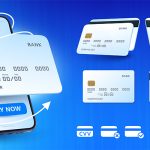In today’s fast-paced digital world, managing your money online has become easier than ever. An online bank account offers convenience, flexibility, and accessibility that traditional banking sometimes cannot match. Whether you’re looking to simplify your finances, avoid unnecessary fees, or manage your savings efficiently, understanding how online bank accounts work can help you make smarter financial choices.
This guide will walk you through the benefits, features, types, safety measures, and key factors to consider before opening an online bank account.
What Is an Online Bank Account?
An online bank account is a type of account that allows you to handle your finances primarily through digital platforms — such as websites or mobile apps — without needing to visit a physical branch. These accounts are often offered by online-only banks, but traditional banks also provide online services that allow customers to manage their accounts remotely.
Online banking has gained massive popularity in recent years because it gives users 24/7 access to their funds and helps simplify everyday financial tasks.
Types of Online Bank Accounts
Online banks generally offer similar account types to traditional institutions, including:
- Online Checking Account
- Designed for everyday transactions such as paying bills, transferring money, or making purchases.
- Often includes a debit card and free online payments.
- Online Savings Account
- Helps users store money safely while earning interest.
- Typically offers higher interest rates than traditional savings accounts because online banks have lower operating costs.
- Money Market Account
- A hybrid between checking and savings accounts.
- Offers limited check-writing privileges and higher interest rates, often with higher balance requirements.
- Certificates of Deposit (CDs)
- A fixed-term account where you agree to keep your money deposited for a set period in exchange for a higher interest rate.
Benefits of Online Bank Accounts
Online bank accounts are not just convenient — they also offer multiple benefits that attract millions of users worldwide.
1. Easy Accessibility
You can access your account from any device connected to the internet — phone, tablet, or computer — at any time. No need to wait for branch hours or stand in line.
2. Lower Fees
Since online banks don’t maintain physical branches, they usually have lower operating costs. This often means reduced maintenance fees, no minimum balance requirements, and free transactions.
3. Competitive Interest Rates
Many online savings accounts provide higher annual percentage yields (APYs) compared to traditional banks. This helps your money grow faster over time.
4. Fast and Secure Transactions
Transferring money between accounts, paying bills, or setting up automatic deposits is fast and efficient. Most banks use encryption technology and multi-factor authentication to ensure your transactions are secure.
5. Eco-Friendly Banking
With paperless statements and digital communications, online banking reduces paper waste and supports environmentally friendly practices.
Potential Drawbacks to Consider
Despite the advantages, there are some factors to keep in mind before switching to an online-only bank:
- No physical branches: If you prefer face-to-face interactions, this might be a limitation.
- Cash deposits: Depositing physical cash can be difficult or require third-party ATMs.
- Tech reliance: You’ll need internet access and some comfort with digital tools.
Understanding these aspects can help you decide whether a full online experience suits your lifestyle.
Security Measures and Online Safety
Security is one of the top concerns for people new to digital banking. Fortunately, reputable online banks use advanced systems to keep your information and funds safe.
Here are a few key features to look for:
- Two-Factor Authentication (2FA): Adds an extra layer of protection by requiring verification codes during login.
- Encryption: Ensures that all data exchanged between your device and the bank’s server remains secure.
- FDIC or NCUA Insurance: Always confirm that your bank is FDIC-insured (for banks) or NCUA-insured (for credit unions). This protects your deposits up to the legal limit in case the bank fails.
- Account Alerts: Set up email or text alerts to monitor transactions and detect unusual activities.
In addition, practicing good personal security habits — such as using strong passwords, avoiding public Wi-Fi, and keeping your software updated — can further protect your account.
How to Choose the Right Online Bank Account
Before opening an account, consider these factors to ensure you make an informed decision:
- Bank Reputation: Check customer reviews and independent ratings.
- Fees and Charges: Review all possible fees, including overdraft, ATM, or transfer charges.
- Interest Rates: Compare annual yields among different online banks.
- Ease of Use: Look for a mobile app or website with a clean, user-friendly interface.
- Customer Support: Ensure the bank provides accessible support through chat, phone, or email.
Taking time to compare options can help you find the best balance between convenience, cost, and features.
Online Banking for Seniors and New Users
Online banking isn’t just for tech-savvy users — it’s also highly beneficial for seniors or individuals with limited mobility. Features like automatic bill payments, voice-assisted banking, and fraud protection alerts make managing finances simpler and safer.
If you’re new to digital banking, start slowly:
- Begin with viewing account balances and transaction history.
- Gradually use mobile deposits or bill payments.
- Always keep login details private and verify messages from the bank before responding.
The Future of Online Banking
As technology evolves, online banking continues to expand with features like AI-driven financial insights, budget tracking tools, and instant money transfers. Many banks now integrate personal finance management systems that help users track expenses, savings, and investments in real time.
The future of banking is increasingly digital — offering users more control, transparency, and convenience than ever before.
Conclusion
An online bank account is an excellent option for anyone seeking flexibility, speed, and convenience in managing their money. By understanding the types, benefits, and safety measures of online accounts, you can make a confident, informed choice that fits your lifestyle.
Digital banking is no longer just a trend — it’s a transformation in how people handle their finances securely and efficiently.




